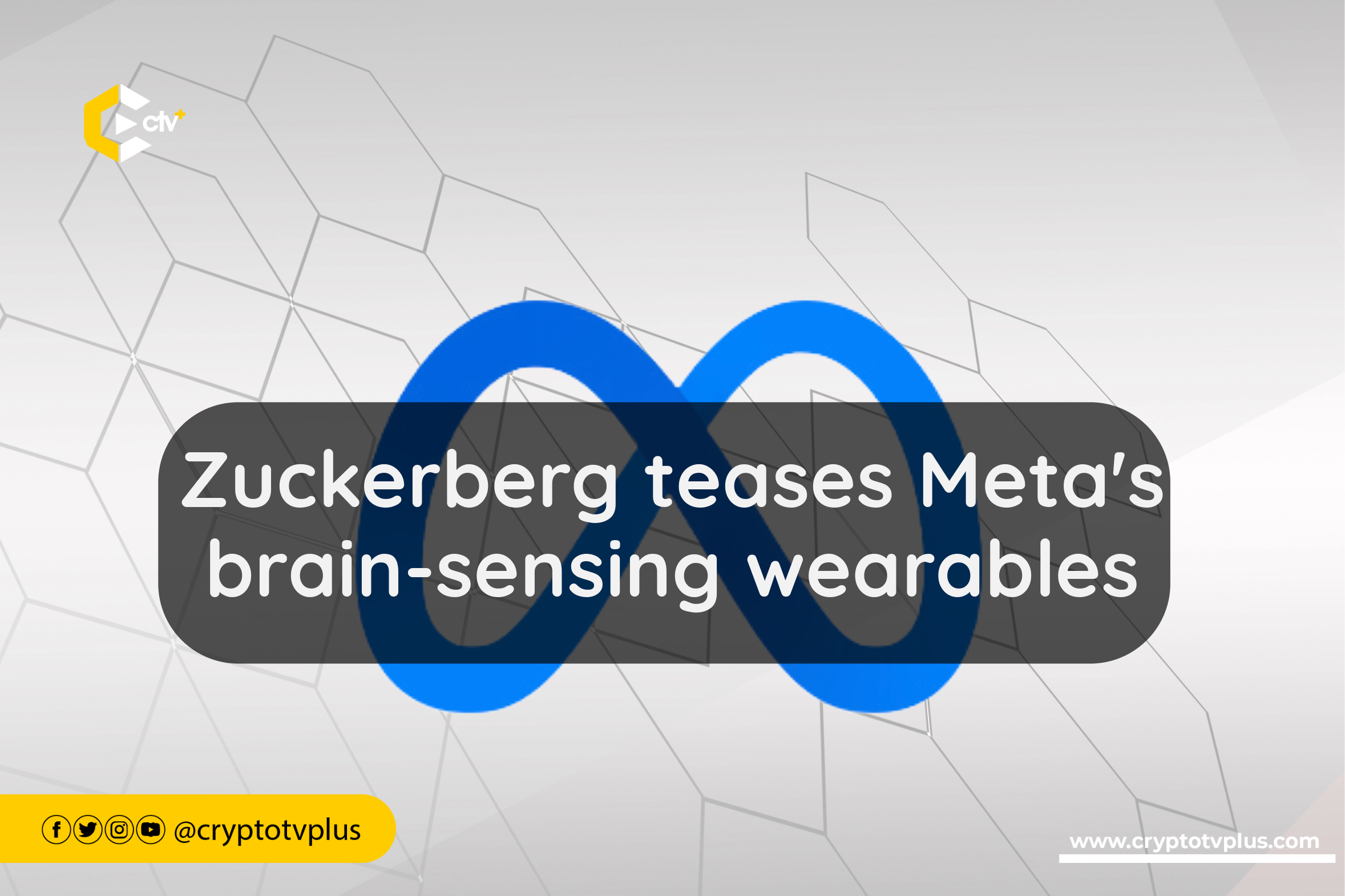News
Zuckerberg teases Meta’s brain-sensing wearables

Mark Zuckerberg, CEO of Meta, suggested that his company is advancing in the development of its initial “consumer neural interfaces,” which are non-invasive wearable devices capable of interpreting brain signals to control computers.
“One of the things that I’m pretty excited about — I think we’ll start getting some consumer neural interfaces soon. I think that’s going to be pretty wild.”
Contrary to Elon Musk’s Neuralink brain chip, Zuckerberg clarified that these devices wouldn’t directly interface with the brain. Instead, they would be wearable on the wrist, interpreting neural signals transmitted from the brain through the nerves to the hand, facilitating subtle movements.
Meta initially introduced the concept of “wrist-based interaction” in March 2021 as part of Facebook Reality Labs Research.
The wristband developed by Meta operates through electromyography (EMG), which interprets brain signals related to intended hand movements and converts them into instructions to operate devices.
“We’re able to read those signals and use them to control glasses or other computing devices,” he added.
During an interview on April 18, Facebook co-founder Mark Zuckerberg discussed the latest developments with tech entrepreneur and YouTuber Roberto Nickson.
“We’re still at the beginning of the journey because we haven’t rolled out the first version of the product, but playing with it internally it’s … it’s cool … really interesting to see.”
Earlier this year, Mark Zuckerberg, CEO of Meta, mentioned the potential for the neural wristband to transition into a consumer product within a few years. He highlighted the role of artificial intelligence in addressing the constraints of camera-based gesture tracking.
Additionally, he envisions that the neural interfaces will be compatible with Meta’s Ray-Ban augmented reality smart glasses.
Commenting on the firm’s smart glasses, he said the “hero feature” was integrating AI into them. “We’re close to having multi-modal AI […] so you don’t just ask it a question with text or voice; you can ask it about things going on around you, and it can see what’s going on and answer questions […] that’s pretty wild,” he added.
In the United States, legislators are actively drafting laws to safeguard privacy within the emerging realm of neurotechnology.
According to reports, the Protect Privacy of Biological Data Act was recently approved in Colorado, extending the definition of “sensitive data” to include biological and neural data.
Meta has unveiled an updated version of Meta AI, the virtual assistant integrated across its suite of applications and smart glasses. Zuckerberg expressed the company’s ambition to develop the foremost AI technology globally.
Meta AI is being upgraded with the new “state-of-the-art Llama 3 AI model, which we’re open-sourcing,” he added.
Read also: Sora Ventures & Metaplanet partner for ‘Asia’s Microstrategy’ pre-bitcoin halving

























1 Comment